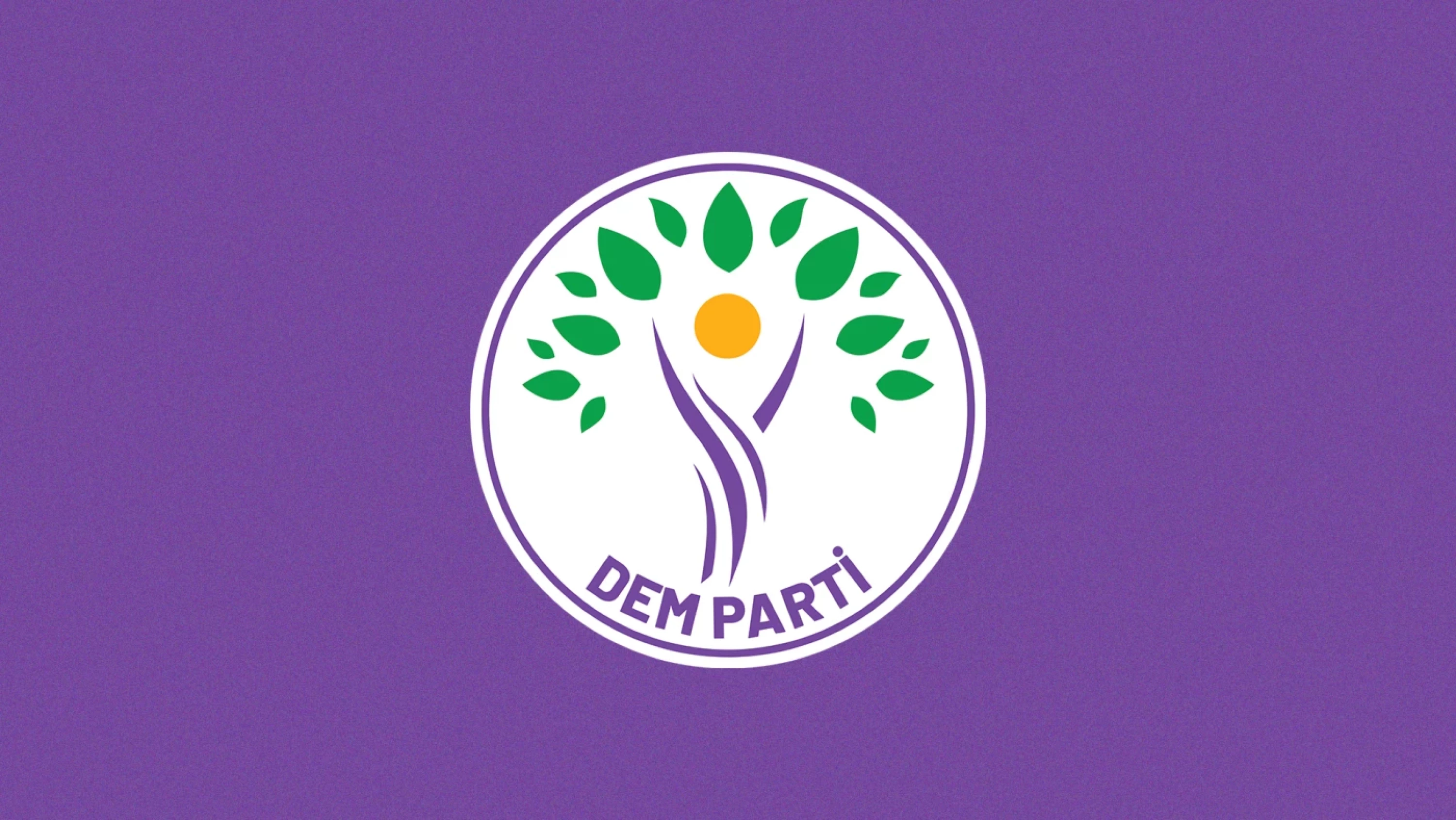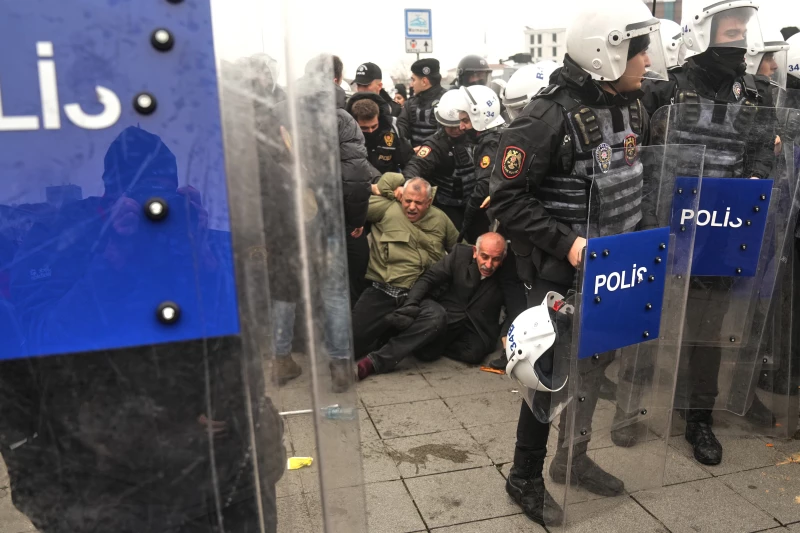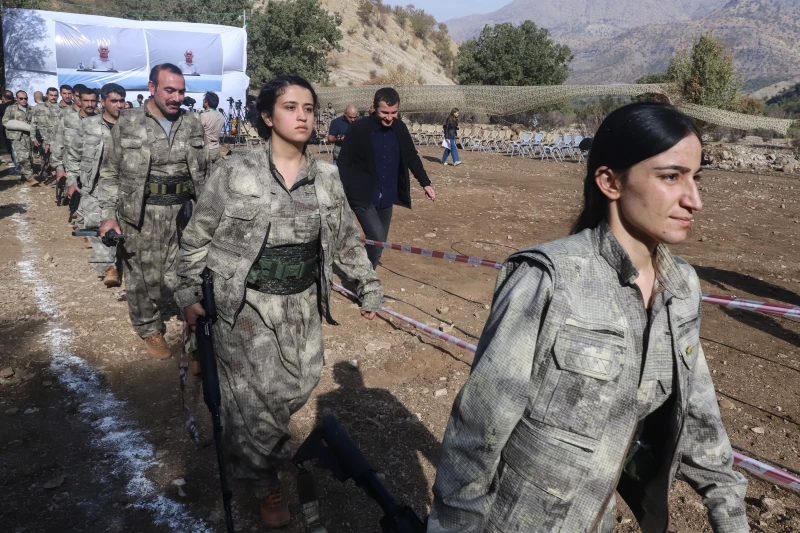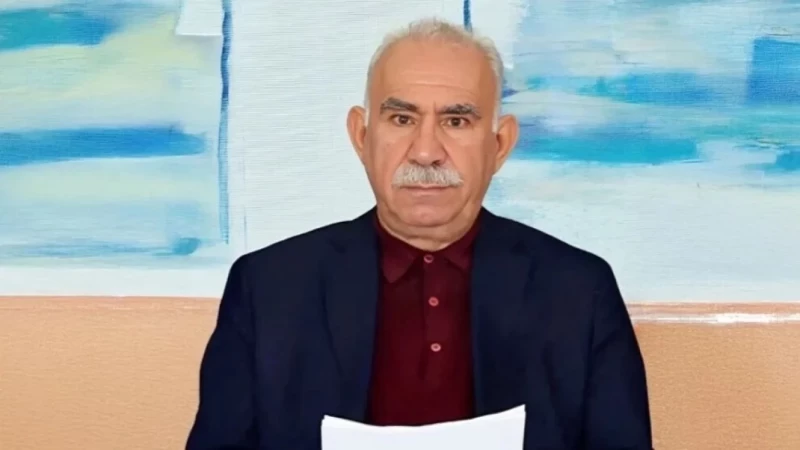ERBIL, Kurdistan Region of Iraq - Tuncer Bakirhan and Tulay Hatimogullari, co-chairs of Turkey's pro-Kurdish Peoples' Equality and Democracy Party (DEM Party), said Sunday that the release of jailed former co-chairs Selahattin Demirtas and Figen Yuksekdag is one of the most important steps for the ongoing peace process between the Kurdistan Workers’ Party (PKK) and Ankara.
“On November 4th, Turkey was plunged into darkness by a comprehensive operation involving our co-chairs. We have just completed the 10th year of their detention. Despite the ECHR [European Court of Human Rights] Grand Chamber's ruling, they are still imprisoned,” Hatimogullari said during a presser in front of Edirne prison, following a visit to Demirtas.
“This has no legal basis,” she continued, urging Turkey to adhere to the ECHR ruling, which stated that Demirtas' rights had been violated.
Hatimogullari and Bakirhan also visited former Mayor of Diyarbakir Selcuk Mizrakli.
“Turkey is a party to the ECHR. As a party to the ECHR, failure to implement ECHR rulings constitutes a failure to recognize international law,” Hatimogullari emphasized.
On November 14, 2016, Turkey launched a crackdown, arresting the DEM Party co-chairs and several other lawmakers and accusing them of having ties with the PKK.
They were both charged with “inciting violence” and “spreading terrorist propaganda” connected to the “Kobani protests,” which broke out mostly in Kurdish-majority areas of Turkey against the state’s inaction when the Islamic State (ISIS) besieged Kurdish-majority Kobani in northeast Syria (Rojava).
The PKK—designated as a terrorist organization by Turkey, Europe, and the US—made the decision to disband in early May following a call by their leader Abdullah Ocalan, who has been imprisoned on Imrali Island since 1999, marking an end to their decades-long insurgency.
Turkey formed a commission tasked with establishing a legal framework for the peace process between Ankara and the PKK, with representatives of most parties taking part. Sessions are being held under strict confidentiality, with records of the proceedings to be sealed for 10 years.
The peace process was initiated by Devlet Bahceli, the leader of Turkey’s far-right Nationalist Movement Party (MHP).
The DEM Party stated that the Kobani prisoners, “beyond supporting peace within the confines of prison walls…will make significant contributions to the social construction of the peace process outside.”
Both co-chairs called for the Kobani prisoners to be released “immediately.”
Bakirhan, for his part, condemned the state for keeping them imprisoned, stating, “We know that Selahattin Demirtas, Figen Yuksekdag, Selcuk Mizrakli, and all our comrades tried in the Kobani Conspiracy Case are innocent. Their innocence has been confirmed by court rulings.”
“We have entered a new period. We are discussing a new period. If innocent people, those who have been imprisoned for 10 years, will not be freed, if they will not be free, how will we garner trust and support for this process?” he added.
The DEM Party and its officials have also repeatedly called for Ocalan’s release since the commencement of the peace process, arguing that his release will act as a gesture of good faith and would help speed along the peace process.
Despite the PKK’s announcement to disband and lay down arms, both sides have proceeded cautiously, with a fully agreed-upon framework having yet to be reached between the two foes to implement the process.



 Facebook
Facebook
 LinkedIn
LinkedIn
 Telegram
Telegram
 X
X


